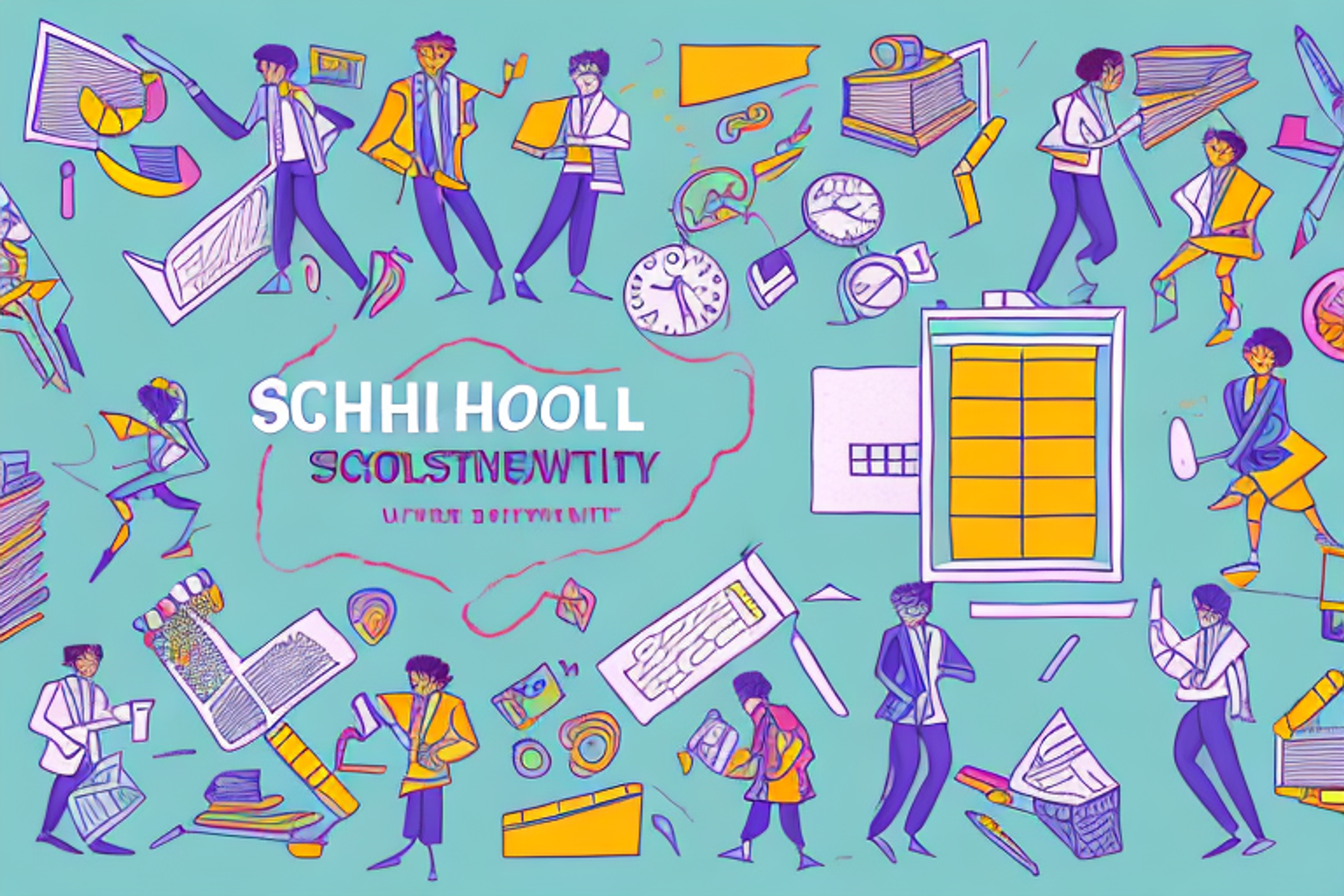The Key Factors Kleiner Perkins Considers for Education Startups
Discover the essential factors that Kleiner Perkins, a leading venture capital firm, considers when investing in education startups.
Posted May 21, 2023

Table of Contents
Kleiner Perkins is a renowned Silicon Valley venture capital firm that has a longstanding commitment to investing in education innovation. Over the years, the firm has helped accelerate several education startups, providing them with access to mentorship, funding, and other resources to drive their growth. If you are running an education startup and are looking to attract the attention of Kleiner Perkins, it’s essential to understand the key factors that the firm looks at while considering investments. This article explores these factors in detail and provides insights into what you should be mindful of while pitching your education startup to Kleiner Perkins.
Introduction to Kleiner Perkins and its Education Focus
Kleiner Perkins is a leading venture capital firm with a long history of investing in cutting-edge technologies and disruptive business models. The firm has a separate fund specifically earmarked for investments in education startups, reflecting its commitment to expanding access to quality education for all. Kleiner Perkins’s education team comprises experienced investors, entrepreneurs, and education experts who are passionate about identifying and supporting education startups that are reshaping the future of learning.
One of the notable education startups that Kleiner Perkins has invested in is Coursera, an online learning platform that offers courses from top universities and organizations around the world. The firm recognized the potential of Coursera to democratize education and provide access to high-quality courses to learners from all backgrounds. Since its launch in 2012, Coursera has grown to offer over 4,000 courses and has reached over 50 million learners worldwide. Kleiner Perkins’s investment in Coursera has not only helped the platform to expand its offerings but has also contributed to the firm’s reputation as a leader in education technology investments.
Market Trends in Education Startups
One of the key factors that Kleiner Perkins considers while evaluating education startups is their market potential. The education sector has been undergoing a massive transformation over the past few years, driven by technological advancements and changing learner needs. Innovation is disrupting traditional models of education delivery, creating new opportunities for startups to make an impact. Some of the trends that Kleiner Perkins is currently monitoring in the education space include personalized learning, flexible and affordable credentials, and immersive learning experiences. Startups that are leveraging these trends to create innovative products and services are likely to catch the attention of Kleiner Perkins.
Personalized learning is a trend that has been gaining traction in recent years. With the help of technology, education startups are able to create customized learning experiences that cater to the unique needs and preferences of individual learners. This approach has been shown to improve student engagement and retention, and is therefore highly valued by investors like Kleiner Perkins.
Another trend that is on the rise in the education startup space is the development of flexible and affordable credentials. As the job market becomes increasingly competitive, many learners are looking for alternative pathways to gain the skills and knowledge they need to succeed. Education startups that offer flexible and affordable credentials, such as micro-credentials or bootcamps, are well-positioned to meet this demand and attract investment from firms like Kleiner Perkins.
The Importance of Innovation in Education Industry
Innovation is at the heart of Kleiner Perkins’s investment philosophy, and the education sector is no exception. With traditional models of education delivery being disrupted, innovation has become crucial for startups looking to make a dent in the sector. Education startups that are developing cutting-edge technologies, leveraging data analytics to provide insights, and creating new models of collaboration are likely to pique Kleiner Perkins’s interest. The firm is keen on supporting startups that are actively contributing to the evolution of the industry.
One of the key benefits of innovation in the education industry is the ability to personalize learning experiences for students. With the help of technology, educators can create customized learning paths for each student, based on their individual strengths and weaknesses. This not only improves student engagement and motivation but also leads to better learning outcomes.
Another area where innovation is making a significant impact is in the field of online education. With the rise of e-learning platforms, students can now access high-quality education from anywhere in the world. This has opened up new opportunities for individuals who may not have had access to traditional education due to geographical or financial constraints. Furthermore, online education is often more affordable than traditional education, making it a viable option for a wider range of students.
Criteria for Kleiner Perkins Investment in Education Startups
Kleiner Perkins evaluates startups based on various criteria before making investment decisions. Some key factors that the firm considers while evaluating education startups include:
In addition to the above criteria, Kleiner Perkins also considers the level of innovation and disruption that a startup brings to the education industry. The firm is interested in startups that are introducing new and innovative approaches to teaching and learning, and that have the potential to disrupt traditional education models.
Another important factor that Kleiner Perkins looks at is the potential for growth and expansion. The firm is interested in startups that have the potential to scale rapidly and expand into new markets, both domestically and internationally.
How Kleiner Perkins Supports its Portfolio Companies
Kleiner Perkins has a robust support system for its portfolio companies, providing them with access to resources and expertise that can help them grow and succeed. The firm offers mentorship and networking opportunities, access to industry experts, and assists with product development, marketing, and expansion. Additionally, Kleiner Perkins provides portfolio companies with access to its extensive global network, which includes large corporations, academic institutions, and other venture capital firms.
One of the unique ways that Kleiner Perkins supports its portfolio companies is through its KP Labs program. This program provides portfolio companies with access to cutting-edge technology and research facilities, as well as mentorship from leading experts in their respective fields. KP Labs also offers portfolio companies the opportunity to collaborate with other innovative startups and researchers, fostering a culture of innovation and creativity. Through this program, Kleiner Perkins is able to provide its portfolio companies with the resources and support they need to stay ahead of the curve and succeed in their respective industries.
Case Studies of Successful Education Startups Backed by Kleiner Perkins
Kleiner Perkins has a history of investing in successful education startups that have gone on to become market leaders in their respective niches. For example, Coursera, a popular online learning platform that currently serves over 77 million learners worldwide, received early-stage funding from Kleiner Perkins and went on to achieve unicorn status. Another successful education startup, EdSurge, was acquired by ISTE in 2019 after receiving funding from Kleiner Perkins. The firm’s portfolio also includes other prominent education startups such as Newsela, Guild Education, and AltSchool.
Future Outlook of the Education Industry and Investment Opportunities for Startups
The education industry is currently undergoing a significant transformation driven by technological advancements and changing learner needs. The COVID-19 pandemic has also accelerated the shift towards online and remote learning, creating new opportunities for education startups to make an impact. Kleiner Perkins believes that the education sector will continue to experience significant growth, and the firm remains committed to identifying and supporting innovative education startups that can reshape the future of learning.
Common Mistakes Made by Education Startups and How to Avoid Them
While pitching to Kleiner Perkins, it’s crucial to avoid common mistakes that education startups often make. One common mistake is failing to articulate a clear value proposition that resonates with customers. Startups that focus too much on technology without considering the broader context and impact on the education industry also tend to struggle. Other mistakes include poor team management and failing to adapt to changing market conditions. To avoid these mistakes, education startups should articulate a clear problem statement, understand their customers, and develop a sustainable and scalable business model.
Best Practices for Pitching to Kleiner Perkins for Education Startups
Finally, it’s worth considering some best practices for pitching to Kleiner Perkins as an education startup. One critical factor is to establish a compelling narrative that explains how your startup is addressing a significant and pressing problem in the education sector. Startups should also articulate a sustainable and scalable business model and demonstrate a deep understanding of their customers. Finally, it's crucial to have a strong team with diverse skill sets and deep industry experience.
Conclusion
Kleiner Perkins is a leading venture capital firm that has a history of investing in innovative education startups. To attract the attention of the firm, education startups should focus on developing cutting-edge technologies, solving significant and pressing problems in the sector, and developing sustainable and scalable business models. Startups that pitch to Kleiner Perkins should also be mindful of the common mistakes that education startups make and develop a compelling narrative that resonates with customers.











